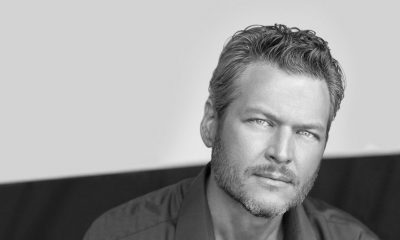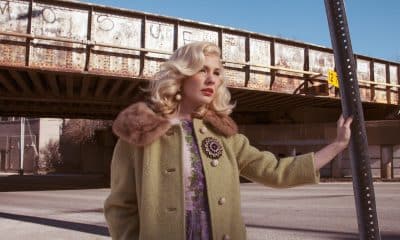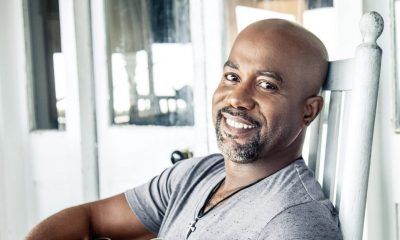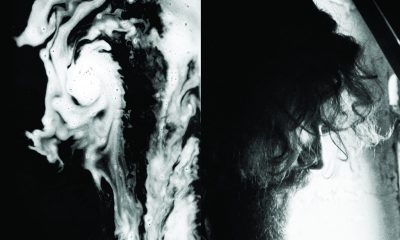Interviews
Amy Dalley Tries Goodbye: Her Life After Curb – An Interview
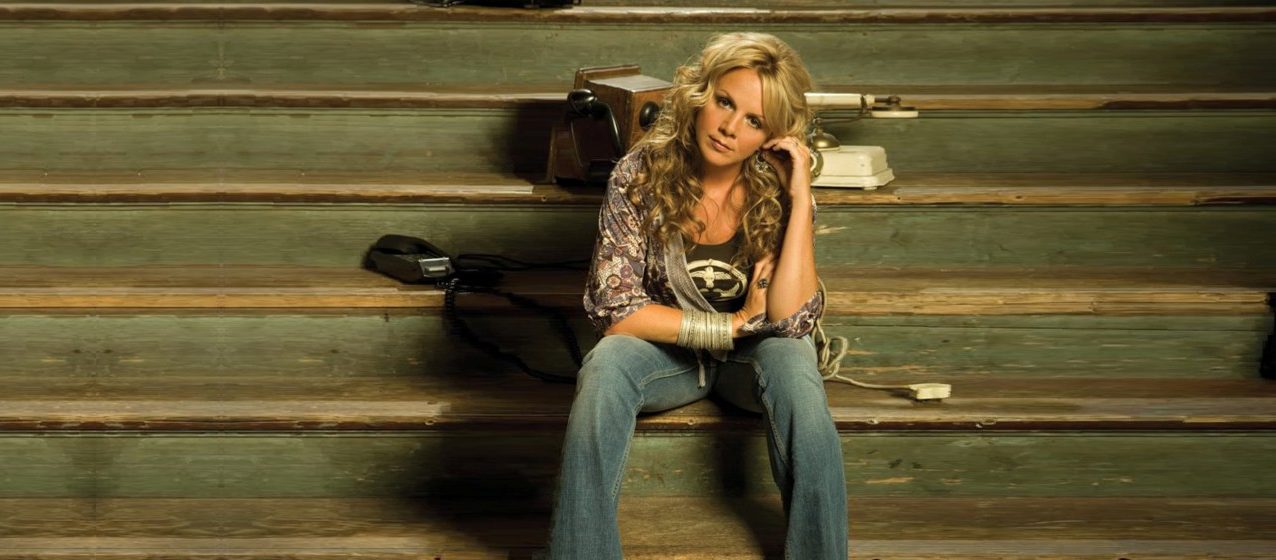
Being dropped from a major recording label is supposed to be a depressing thing for an artist. But former Curb singer/songwriter Amy Dalley is the latest in a long line of contemporary country females who have seen the dissolving of their contracts as a blessing. In Dalley’s case, it was a long awaited one.
After releasing seven Curb singles, three of which cracked the top 30, Dalley knew that it was time to move on. So the title of her debut album, which she’ll release independently next Tuesday, is a fitting one: It’s Time is an album almost a decade in the making. In this exclusive interview for The 9513, Dalley talks about her expierience at Curb, her new music, and her plans for the future.
JIM MALEC: First of all, I have to tell you that you’ve achieved something I used to dream about: You had a song that you wrote featured in an episode of Dawson’s Creek. Can anything in your career possibly top that?
AMY DALLEY: Yeah! Let’s see. Well, I did write a song that Reba cut and put out as a single—“My Sister.”
JM: I guess that’s a slightly bigger deal.
AD: Well, yeah. If you’re a girl who’s a singer and you’re growing up wanting to be Reba. That was pretty cool.
JM: So here you are—seven singles later—with an album out. Finally. We’ve been waiting a long time. How does it feel?
AD: It feels awesome. When you say it like that, it sounds like forever. And it has been. It’s been a long road. But I’m really glad we’re able to finally get an album out and that all the music will be heard.
JM: What went wrong at Curb? You were there for a long time, but it just never really worked out.
AD: I’m not sure. I was able to do really cool things while I was there, so I don’t harbor ill feelings. Some days, I feel like a lot of time was wasted. For the last couple of years it was extremely frustrating because I knew that it already hadn’t gone the way I wanted it to. I felt like they should have put the album out when “Men Don’t Change” did well on the charts. They just had a certain magic number, I guess, in their heads that they wanted to reach chart-wise with a single before they would put the album in stores. We never quite got high enough. And it just became very frustrating. I felt very stuck and unhappy.
Finally I was released, and just felt immense freedom. Finally I could just make music and put it out. It’s hard to do it on your own, but it’s not as hard as feeling like you’re never gonna get there.
JM: Were you surprised when Curb let you go, or was it something you had been expecting?
AD: For a few years I had been going through my managers, asking for the label to let me go, to release me from my contract. And they [the people at the label] were always like, “Oh, no—we’re gonna put out another song, it’s gonna be great. You’re gonna see. We’re gonna make this happen. We believe in you. We love you.” And then, one day, I got a certified letter in the mail. I was like, “I got dropped. That’s weird.”
JM: That’s how they do it these days, eh? Not even a phone call?
AD: For me. I just got the letter that said to go and chase my dreams. Good luck with your endeavors or whatever.
JM: Did you immediately, upon your initial reading of that letter, feel a sense of freedom? Or did it come later?
AD: I think it came later. ‘Cause there was just kind of a period after that where I wondered, “Well, what do I do now?” I’d been a Curb artist for a long time, whatever that meant. That’s what I was. I had that tag with me all the time. Then, all of the sudden, I wasn’t.
It became really cool when we started making the album. I was able to say, “Wow, I can really just do whatever I want to.” I mean, it was really never about a power struggle with me and Curb. It never was about that. I was always willing to go with the flow. If they said a certain song should be the single, I was like, OK, cool, I wrote that one. That’s no problem. But it just felt really good to be able to record what I wanted to and be able to do the whole album jacket and write what I wanted in there.
JM: Did you shop this project at other labels, or did you always know that you wanted to release it independently?
AD: I didn’t go to any other labels at all. It’s not that I’m anti-record label or anything like that, I just had had a really big dose of it already. And what I want to do is go play live music and sell my CDs at my shows. That’s what I want to do. And I have two kids. I need to be home some and go play some—I have to have both. I’m just figuring out, a little bit more each day, how I can do both of those things really well.
JM: How satisfied are you with this being your debut album?
AD: I love it. I can honestly say that I’m very, very proud of it. My husband and I co-produced it and we worked on it with friends that we’ve known. I mean, we’ve both been in Nashville for a really long time and know great musicians and great engineers, and we all just really put our hearts and souls into it. We made the album I’ve always dreamed in my head. I’ve always wanted it to sound like this. I’ve always wanted it to be songs that I love. I really just went with whatever I wanted to put on there. I just thought about what songs I love and what songs I’d want to drive around and listen to.
Not that I drive around listening to my songs. ‘Cause that’d be weird.
JM: If you had released your debut on Curb, would it have been as good as It’s Time?
AD: Any time that you have people who you answer to, at the label or wherever, their decisions are going to come into play. They’re going to decide on certain songs. They’re going to decide on certain things. I mean, I was really happy with the music before [at Curb], because I was working with my then-producer Lee Miller, and I love the music that we created. It happened really organically. We started out writing songs, then demoed the songs, and then those demos turned into songs that were on the record—well, what I call the record, which was never a record but just songs we turned in to Curb. I really love that music. And it saddened me a lot that all of that work, seven years worth of work, was never gonna be heard—except for the few songs that were on the radio.
That was bittersweet for me.
JM: Why did you decide not to work with Lee on this project?
AD: It wasn’t that I decided not to. When the label is involved, people get paid per side that they cut. And It’s Time was totally independent. I was payin’ out of my checkbook. So I didn’t want to say “Hey, will you go ahead and produce this, and I’ll just pay you later?”
We’re still really great friends. But I wanted to do this myself. And I wanted my husband, Jack, to help me. That’s how we did it—keepin’ everything in-house.
JM: Was this the first time you got to work with Jack?
AD: We had never cut a record or anything. We had written a lot of songs together. I love writing songs with him. And he’s very musical—he’s always playing me stuff on the guitar and I’ll tell him, “Hey, that’d be a cool song.” So we’ll think about it and write it later.
It was really easy to work with him. He plays guitar and right now he’s out on tour with Chuck Wicks. So he was gone for a lot of the actual recording, but he and I did a lot of pre-production work and he helped choose the players. And of course he played guitar when he got home, and sang some background on it.
JM: There is some striking material on the album. “Friday Night With The Broken Hearted,” especially, hit me as sharp and unusually honest. Do you feel like there’s a substantive difference between your music and the types of songs that become hits on country radio? Is your music too smart for country radio?
AD: Yeah, maybe. I try not to write that way!
I think that you could spend a lot of time chasing what everybody’s trying to do. It’s really hard to write catchy songs that people want to sing to and hear on the radio. It’s harder than you’d think. You hear something like that and think, “Oh, that’s a silly song.” But we didn’t think about it, somebody else did. So writing that type of song is hard to do.
I just try to write the best song that I can write for whatever I want to say that day. I try not to think too much about what people want to hear, because then you end up not being true to yourself. Maybe my songs are too smart for the radio, or too weird or whatever.
JM: That song has a line in the bridge that says, “There might be some prayin’/There might be some ice cream,” which I thought was a good example of the way your writing has a tendency to straddle the bittersweet and the humorous.
AD: I always try to find something to laugh about. I try to find something funny, even in a bad situation. I’m always the one who’s trying to make a joke about something, even in a moment of seriousness—just to lighten the mood or whatever. So I think that does come out in my songs. ‘Cause you don’t want to keep everything so heavy, you know, like, “I’m just gonna be prayin’ tonight that I feel better tomorrow.” I’ll probably pray for a minute then eat some ice cream, and I’ll be good.
JM: What will make this album a success? Do you expect support from radio? You’d be the exception to the rule.
AD: It’s changed a bit in terms of what I want. The dream’s a little bit altered now. What I really want, now, is to be able to go play live shows and sell the music. And sell it on the internet of course. I want to create a fanbase based on people who really love the album, and who want another one, and just kinda build things like that. I don’t know what the magic number is that’ll make me be like, “Oh, I’ve done it! I’ve created my dream!”
But just to be able to keep working hard every day towards something that means success is good for me.
JM: I read an interview you gave a few years back where you said: “I feel like this year is my year and I am really thrilled to have this opportunity.” That was 2007. So let me ask you—is 2009 your year? And do you have different expectations now about what it means for a year to be your year? There has to be temptation, when you’re on a major label, to think about becoming a superstar. And that’s a tougher task for you now.
AD: Yeah. I mean, I think I’ve always wanted that, even since I was a little girl. I wanted to be on the radio. I wanted to do videos. I wanted to be number one on the chart. I’ve always wanted that. Sadly, I guess, I remained hopeful the whole time I was at Curb, every time they would say, “We’re gonna do another song and it’s gonna be great.”
That’s probably what I was referring to in 2007, when they pretended, I think, to put out “Let’s Try Goodbye.” They really didn’t put it out, but they said they were going to. That’s a song that I deeply, deeply loved for a very long time. I was really, really excited about that. I was hopeful that it was going to be a great thing like they had promised. For whatever reason, it didn’t get promoted in the way that it should have. Shortly after that is when I was let go.
The weird thing about now is that it’s a total unknown. This is uncharted territory for me, as far as what this year’s going to hold.
JM: I was reading another interview you gave some years ago where you cited Loretta Lynn as one of your biggest influences. What’s your favorite Loretta Lynn album? Not to put you on the spot or anything.
AD: I really love Van Leer Rose. That’s one I listen to these days. I think it’s cool how it’s updated but still totally her. All the songs, you hear them and you’re like, “Yeah! That’s what Loretta would say!” And then you realize that is her sayin’ it. I just think it’s really cool.
JM: In that same interview, you said that, like Dolly Parton, Lynn was a woman who said whatever she wanted in her music. Do you feel like you’re a songwriter who is able to say whatever she wants?
AD: I do, whether I’m supposed to or not. Maybe that’s part of my problem.
I just really feel like both Loretta Lynn and Dolly Parton just say whatever they want. They just say whatever they need to say for that day. That’s hard as a songwriter, to always say whatever you need to for that day. And then, you go on and say something else the next day. It’s hard to do because of all the outside influences, and what you hear on the radio, and what you hear other people writing. It’s hard to remain true to yourself.
JM: Is there resistance within the industry to a woman who writes with that level of directness?
AD: Dolly and Loretta definitely opened a lot of doors. There are a lot of girls these days who are writing in that tradition, like Miranda Lambert and Jennifer Nettles—I think they’re both really honest about what they say and how they write. I think it’s becoming fair.
JM: Considering the legacy of those two legendary artists, what would you like your legacy to be? If you were to continue your career as an independent artist, what would hope that the next generation would say about you?
AD: I want to be considered a good singer and a good writer. I want people to say that I worked really hard. And I think it’s important to have the respect of other musicians and other people in the industry. I hope they’ll says, “She’s cool. She did things her way. She made it happen.
- Lists13 years ago
Top 10 Country Music Albums of 2010
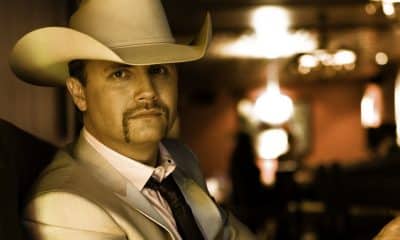
 Interviews5 years ago
Interviews5 years agoJohn Rich – The Interview

 Song Reviews16 years ago
Song Reviews16 years agoTaylor Swift – “Love Story”

 Interviews5 years ago
Interviews5 years agoHoneyhoney on Hiatus: Revisit our 2008 Interview with Suzanne Santo
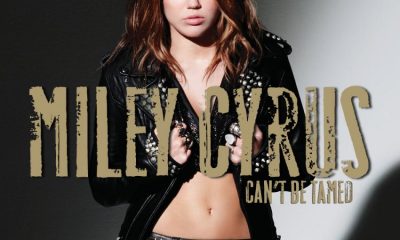
 Album Reviews14 years ago
Album Reviews14 years agoAlbum Review: Miley Cyrus – Can’t Be Tamed
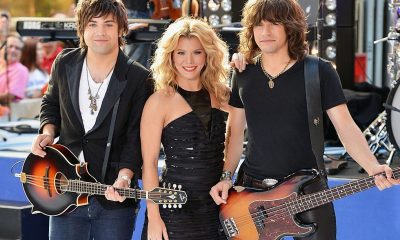
 Song Reviews6 years ago
Song Reviews6 years agoThe Band Perry – “Hip To My Heart”
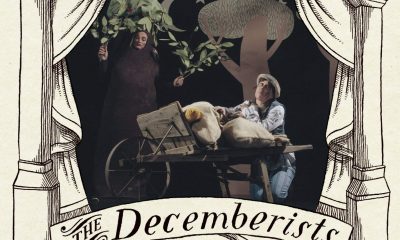
 Columns5 years ago
Columns5 years agoThe Link Between Folk Music’s Past and Present
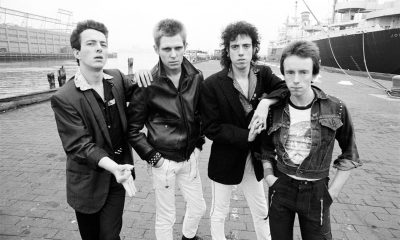
 Columns5 years ago
Columns5 years agoIs Marketing Killing Rock and Roll?


